Blame Brexit: The Volkswagen Golf Cabriolet Is Sunk, Likely Never to Rise Again
If it’s not Obama’s fault, then it’s probably Brexit’s.
Volkswagen’s sixth-generation Golf is destined to mark the end of the Volkswagen Golf Cabriolet run. The Mk7 Golf didn’t spawn a droptop variant and the United Kingdom’s shrinking car market has reportedly caused Volkswagen to cease development of the eighth-generation Golf’s cabriolet.
Of course, Volkswagen hasn’t sold a topless Golf in the United States since the 2002 model year, when an Mk3 Golf essentially wore the Mk4 Golf’s face. That’s a 15-year gap for topdown Golf motoring, a timespan which saw Golf Cabriolets disappear in other markets, as well. But five years after launching the Volkswagen Eos — a Golf-related convertible with a power retractable hardtop — Volkswagen brought the Golf Cabriolet back from the grave for the Mk6 generation. There was even a GTI.
With the Eos’s death, it appeared likely that the Volkswagen Golf Cabriolet would be redeveloped yet again. But with a soft UK car market — a bizarrely convertible-hungry market, by the by — since Britons voted to sever ties with the European Union, Volkswagen boss Herbert Diess told Autocar, “We wanted to do a convertible now, but with the relatively weak UK market and the uncertainty about what will happen, we had to think against it.”
So, Beetle Convertible it is.
Forget Volkswagen's '800,000 Sales by 2018' Goal - VW's New Goal Is 5 Percent U.S. Market Share by 2020
In 2009, during the depths of a global financial crisis the likes of which generations had never seen, Volkswagen of America set forth on a nine-year plan that would more than triple sales to 800,000 units in 2018.
Stuff happened. A crisis (or two) got in the way. An overly Americanized product lineup lacking in utility vehicles underachieved. Volkswagen lost its right to sell diesel models in America. Volkswagen will struggle to sell 400,000 new vehicles in the United States in 2018.
Although at first it seemed possible — Volkswagen sales grew far faster than the market as a whole exiting the recession — the 800,000-unit sales goal has long since been abandoned. By 2014, before the diesel emissions scandal even broke, now-departed Volkswagen of America CEO Michael Horn was questioning the timing of the 800,000-sales goal.
As the summer of 2017 approaches a close, however, Volkswagen’s global boss Herbert Diess has a new, seemingly unrealistic goal for the brand’s U.S. operations, Bloomberg reports. With a stronger SUV lineup, Volkswagen wants to grow its U.S. market share to 5 percent in 2020.
Volkswagen’s market share in 2017? Less than 2 percent.
2018 Volkswagen Tiguan SEL Premium 4Motion Review - Perky and Peppy Gives Way to Mellow and Mature
It took Volkswagen forever. But finally, in 2008, more than a decade after the compact SUV craze began, the first-generation Tiguan landed on U.S. shores. The Tiguan was more premium-priced than it deserved to be and smaller than it needed to be, but with a potent powerplant and fun-loving on-road behavior, those who could afford it and fit in it were happy.
It took Volkswagen forever. But finally, in the summer of 2017, nearly a decade after the first Tiguan arrived and eventually watched the release of two new Honda CR-Vs, two new Hyundai Tucsons, countless rival redesigns, and a bevy of new competitors, the second-generation Tiguan landed on U.S. shores.
The 2018 Volkswagen Tiguan is now competitively priced. It’s properly sized — marginally larger than many rivals rather than distinctly smaller. This time, however, because of extra weight and an intransigent powertrain, the Tiguan doesn’t feel quite so punchy off the line. And in place of a dynamic repertoire vaguely reminiscent of an Mk5 Golf GTI — lively steering, quick turn-in, grippy cornering — the 2018 Tiguan is comfort-focused, keen on absorbing and mollifying and coddling.
Bigger, more comfortable, and arguably more attractive? The 2018 Volkswagen Tiguan finally sounds like a Tiguan American crossover buyers might actually want.
Cranking It Up to 'R': Volkswagen Planning Product Assault on Mercedes-AMG, Report Claims
Unlike Mercedes-AMG, Volkswagen’s R performance division isn’t much of a sub-brand. While the VW Golf R remains the industry’s quintessential hot hatch, there’s no shortage of rivals ready and willing to usurp its position as a segment leader. Also, one model does not a sub-brand make.
Down the road from VW’s Wolfsburg, Germany, headquarters, the executives in Stuttgart can’t AMG-ify Mercedes-Benz products fast enough. SUVs, “coupe” variants of SUVs, sedans, and legit coupes are all going under the knife, emerging with taut suspension, improved driving dynamics, and an all-important shot of horsepower — traditionally in “strong” and “extra strong” doses. Not only does it improve an automaker’s image, it also helps sell high-profit utility vehicles.
Volkswagen requires some of Mercedes-AMG’s medicine. Now, according to a recent report, it may have the cure it’s looking for.
Confirmed: Volkswagen Canada Won't Be Offering the T-Roc, Either
Not only is Volkswagen’s recently unveiled T-Roc subcompact crossover destined to avoid U.S. shores, Volkswagen’s Canadian dealers won’t be offering the T-Roc, either.
Revealed last week, we had always assumed the T-Roc was the logical next step for a Volkswagen brand that had suffered long and hard from a limited, delayed, premium SUV strategy in North America.
But it turns out Volkswagen of America will skip the T-Roc, likely in favor of a different small utility vehicle. So we asked Volkswagen Canada whether the T-Roc would arrive for the 2018 model year, the 2019 model year, or never at all.
Volkswagen’s response is the third option. “At least for now,” company spokesperson Thomas Tetzlaff tells TTAC.
Surely small-car-loving Canada — where the Honda Civic has been Canada’s top-selling car for 19 consecutive years and subcompact cars hold 19 percent more market share than they do in the U.S. — wants another subcompact crossover? Nah, not so much. Like Americans, Canadians haven’t fully latched onto the subcompact crossover, either. Not yet.
Volkswagen T-Roc Is Definitely Not Coming to America Now (and Probably Not Ever)
Volkswagen is perpetually late to the SUV party. That much we knew already. The Volkswagen Touareg came late, and was improperly positioned. The Volkswagen Tiguan was much later, and it too was overpriced and undersized. The Volkswagen Atlas, the brand’s first three-row crossover, only arrived in America this spring.
The Volkswagen T-Roc was clearly not the first guest to arrive, either. The Nissan Juke, Mini Countryman, Subaru Crosstrek, Buick Encore, Chevrolet Trax, Jeep Renegade, Fiat 500X, Honda HR-V, and Mazda CX-3 have been collecting U.S. sales for years. But it’s not as though Volkswagen was the only major automaker late to the party. Ford’s EcoSport still isn’t here, the Hyundai Kona and Kia Stonic were unveiled only recently, and Toyota’s C-HR is a fresh release that lacks an all-wheel-drive option.
But the Volkswagen T-Roc, revealed last week, will be more than just late to the party. In the United States, the Volkswagen T-Roc has returned its invitation by ticking the wrong box. Regret to decline.
Volkswagen of America has confirmed to TTAC that the Volkswagen T-Roc will not come to the United States, probably not ever.
Former Volkswagen Diesel Engineer Headed to the Big House After Judge Makes an Example of Him
A former Volkswagen engineer who helped federal investigators after being linked to the diesel emissions scandal will cool his heels in an American prison.
U.S. District Court Judge Sean Cox sentenced James Liang, 63, to a 40-month term today, tacking on a $200,000 fine for his involvement in the automaker’s diesel deception. Liang is the first Volkswagen employee prosecuted for having a role in the conspiracy.
Ex-Volkswagen CEO Learned of Emissions Cheating a Month Before Board, Report Claims
German media is reporting that former Volkswagen CEO Martin Winterkorn, who resigned shortly after the diesel emissions scandal erupted in September 2015, was informed about the company’s emissions cheating in late July of that year — a month before the automaker claims its executive board learned of the issue.
Several media outlets are reporting that a former senior VW quality officer told Winterkorn on July 27, 2015 that the company “cheated,” Reuters reports.
Fiat Chrysler, Volkswagen in Talks About Joint Truck and Van Production: Report
Fiat Chrysler Automobiles, the manufacturer currently at the center of rampant speculation over a possible Chinese buyout and a spin-off of its Italian luxury brands, is reportedly in early talks with Volkswagen over the joint production of certain light utility vehicles.
Volkswagen, which has made crystal clear it wants nothing to do with a merger, might have products the Italian-American automaker could find beneficial. Despite the awkward back-and-forth between FCA CEO Sergio Marchionne and VW Group chief Matthias Müller earlier this year, the German automaker didn’t rule out discussions with FCA.
According to a source close to the issue, the discussions include future versions of VW’s small commercial van and, interestingly, a midsize pickup truck.
Volkswagen T-Roc Debut Reveals a More Traditional Crossover
Opening with a query as to whether or not the audience was, “Ready to Roc” or not, Volkswagen showcased the production version of the T-Roc today in Italy. However, the model that arrived on stage didn’t quite resemble the compact crossover concept vehicle we’ve grown accustomed to.
While shorter in appearance than a traditional baby SUV, the T-Roc isn’t the coupe-adjacent vehicle we were led to believe it might be. True to form, VW played it safe.
There are some notable exceptions, however. The bi-color design allows the roofline to be mismatched with the bodywork and the interior has some fun color options — both in its lighting and trim. But it lacks the swept-back roofline and lowered stance of the prototype. The upside to this is superior interior volume and more traditional SUV characteristics that the public will be less likely to shy away from. Volkswagen wants volume, after all.
When It Comes to Tardy SUV Launches, at Least Volkswagen Knows It Has a Problem
“I don’t know why we are late.”
– Frank Welsch, head of development for Volkswagen, ahead of T-Roc launch
It’s been less than one week since TTAC’s B&B had its collective say on the subject of Volkswagen’s SUV delays. But in an interview with Autocar, Volkswagen’s head of development, Frank Welsch, certainly isn’t denying the problem.
“I don’t know why we are late,” Welsch says, speaking not only of utility vehicles such as the T-Roc, but Euro-MPVs as well. “With the Touran we were late, the Sharan we were late. I cannot explain why, here we are.”
“I’m happy to have this car now.”
As if stepping out of a rehab program for automakers addicted to ignoring obvious trends, Volkswagen has finally completed the first step: recognizing the problem. The T-Roc will be unveiled this afternoon, August 23, 2017, years after the Nissan Juke, Mini Countryman, Subaru Crosstrek, Buick Encore, Chevrolet Trax, Jeep Renegade, Honda HR-V, and Mazda CX-3 took control of the subcompact crossover segment.
2017 Volkswagen Tiguan Limited Priced From $22,895; Old New Tiguan Costs $3,350 Less Than New New Tiguan
The old new Volkswagen Tiguan will cost $3,350 less than the new new 2018 Volkswagen Tiguan.
Known now as the Tiguan Limited, a basic 2017 model rides on 16-inch steel wheels with no cargo cover, front-wheel drive, and the premium-fuel-swilling 200-horsepower 2.0-liter turbo four-cylinder.
Priced from $22,895 including a $900 destination charge, the 2017 Volkswagen Tiguan Limited undercuts the second-generation Tiguan by $3,350 and the non-Limited 2017 Tiguan by $2,965.
Volkswagen Passat and Beetle Engine Lineups Altered for 2018 With Tiguan's 2.0T
Volkswagen of America confirmed last evening via email the alteration of the Passat and Beetle engine lineups for the 2018 model year.
In examining updated EPA mpg figures for the 2018 model year — as one does — we noticed a curious change. The 2018 Volkswagen Beetle Dune achieves slightly better highway fuel economy, 34 mpg, than the non-Dune 33-mpg 2018 Volkswagen Beetle.
By the by, after posing a handful of questions to Volkswagen of America spokesperson Mark Gillies, TTAC learned that the 1.8-liter turbocharged four-cylinder that served as the base engine in the Volkswagen Passat and Volkswagen Beetle from 2014-2017 is out. It gives way in the 2018 Passat and Beetle to the second-generation Tiguan’s EA888 Gen3B 2.0-liter turbocharged four-cylinder.
The result? Better fuel economy and more torque.
QOTD: Will Volkswagen Be Forever Punished for Its SUV Tardiness?
The Nissan Juke and Mini Countryman arrived in the United States in 2010. The Subaru Crosstrek appeared two years later.
Buick’s Encore appeared at U.S. dealers in 2013; its Chevrolet Trax partner the following year. 2015 saw the arrival of the Fiat 500X, Jeep Renegade, Honda HR-V, and Mazda CX-3. The (FWD-only) Toyota C-HR landed in April 2017. The Hyundai Kona was unveiled in June 2017 and will show up in U.S. Hyundai stores this coming winter.
And on August 23, 2017, Volkswagen will unveil the T-Roc, which isn’t likely to go on sale in the United States until 2019. That’s nine years late.
Will the T-Roc’s tardiness cause the subcompact Volkswagen crossover to suffer the marketplace consequences just as its overdue siblings always have?
Eight Consecutive Months of Volkswagen Sales Improvement Ends in July 2017 - Crossover Volume Still Very Low
After steady declines even prior to the diesel emissions scandal of nearly two years ago, Volkswagen of America took another serious hit in 2016 — the best year on record for the auto industry. Compared with 2012, Volkswagen volume sank by 85,000 sales last year.
But by the end of 2016, Volkswagen’s U.S. sales volume was beginning to rise again. True, that rise was in comparison with a true low — Volkswagen sales in the final one-sixth of 2016 were up 22 percent year-over-year but were 17-percent lower than in the same period of 2012 — but Volkswagen was bouncing back.
The bounce back continued through the first half of 2017, with Volkswagen sales through June up 8 percent despite the market’s 2-percent downturn.
Perhaps July was just a blip on the radar. But Volkswagen’s eight-month streak of improvement screeched to a halt last month as the U.S. auto industry reported its most significant losses of the year, and as Volkswagen’s new SUV lineup continues to dip its toes in American waters.
Volkswagen's Totally Toned-down T-Roc to Debut August 23rd
It’s the moment you’ve been waiting for. No, not the unveiling of Fiat Chrysler’s pavement-incinerating Dodge Demon, nor Tesla’s world — no, universe-saving Model 3.
No, the hottest thing in the land is the crossover, and no crossover breaks with staid utility vehicle norms quite like Volkswagen’s radical, two-door, pillarless, targa-top creation, the compact T-Roc. Hold on, that was the concept. Scratch that. The four-door, fixed-roof, happily pillared product of the concept’s metamorphosis will soon get its time in the spotlight, having been green-lit for production by a profit-focused VW.
The T-Roc, which kept the 2014 concept’s name despite dropping its ready-for-the-beach bodystyle, gets its big reveal on August 23rd, ahead of a global premiere at next month’s Frankfurt Auto Show. Can you handle it?
Older Volkswagen Diesels Potentially Saved From Execution After EPA Approves Fix
Nearly two years after the mother of all automotive scandals yanked nine years’ worth of Volkswagens out of the “law-abiding citizen” category and into the environmental slammer, U.S. regulators have approved a fix for older VW 2.0-liter diesel cars.
The fix, which many believed would never happen, received an official thumbs up from the Environmental Protection Agency and California Air Resources Board today. The move means potential salvation for 326,000 otherwise doomed VW and Audi vehicles in the United States.
It's Only Getting Going, but the Volkswagen Atlas Is Already One of VW's Top Sellers
June 2017 was only the Volkswagen Atlas’s first full month on sale in the United States, but the Atlas, still ramping up inventory, already accounts for more than half of Volkswagen’s U.S. utility vehicle sales. In fact, the only Volkswagens that sold more often than the Atlas in June were the Jetta, Passat, and (if you count all variants together) the Golf.
2,413 units is not a terribly impressive number, although it’s stronger than what the Mitsubishi Outlander, Ford Flex, Mazda CX-9, and Volkswagen’s two other utility vehicles managed last month. But the rate at which Volkswagen is building the Atlas at the company’s Chattanooga, Tennessee, assembly plant suggests dealers are only beginning to see just how many copies of the Atlas they’ll soon have to sell.
Will there be buyers?
Next Volkswagen Golf R and GTI Likely to Become Leaner, Meaner, Maybe Greener
As Volkswagen progresses toward electrification and bolsters is court-mandated greener image, concerns arose that enthusiasts might be left to fend for themselves.
Those fears appear to have been entirely unnecessary. With Ford upping the ante with its hot-hatch Focus variants and newcomers like Hyundai’s attractive i30 N planning to enter the market with a minimum of 246 horsepower, VW knew it had to bring more to the table with its Golf. News from Germany indicates Volkswagen’s world-famous hatchback will lose some weight for its eighth generation and gain beefed-up powertrains.
Dead, or Just Sleeping? Volkswagen of America Drops Touareg From 2018 Lineup
An inconsequential 1,630 copies of the Volkswagen Touareg were sold in the United States during the first half of 2017.
It’s therefore unlikely you’ll notice the Volkswagen luxury SUV’s absence now that Volkswagen has decided to eliminate the Touareg from its 2018 U.S. lineup.
Initially reported by Motor Trend yesterday, Volkswagen’s decision to discontinue the Touareg was confirmed to TTAC by Volkswagen of America spokesperson Jessica Anderson today. “Our focus for the 2018 model year is the all-new Atlas and redesigned Tiguan.”
So is the Touareg done, or just done for now? Volkswagen of America won’t say.
VW Bosses Told Full Emissions Costs Months Before Coming Clean: Report
Throughout the entirety of Volkswagen’s diesel emission scandal, the automaker has changed its tune on several occasions. After evading scrutiny from regulators for years, it finally admitted to installing illegal defeat devices designed to fool U.S. emission testing in late 2015. However, it assured the public that no high-ranking executive had complete knowledge of the misdeed until news of the scandal broke to outraged consumers.
Obviously, that was a lie. But no damning evidence came out indicating anyone above mid-level management had prior knowledge of the devices or any idea they would be so harmful to the company. But now a Volkswagen manager arrested earlier this year claims the automaker’s former chief executive and other top managers had been told the carmaker’s diesel emissions violations could cost up to $18.5 billion, well before the September 2015 announcement.
Don't You Dare Call the Volkswagen Arteon, the CC's Replacement, a Hatchback
Humpback. Tailback. Silverback.
Paperback. Greenback. Kickback.
Payback. Setback. Buyback.
Notchback. Liftback. Hatchback.
Fastback.
Elmar-Marius Licharz, the director of mid and large car model lines at Volkswagen, makes it very clear that the 2018 Volkswagen Arteon, a successor to the Volkswagen CC, is not a hatchback.
Volkswagen of America's New Sales and Marketing Chief: Skoda's Werner Eichhorn
One month ago, former Hyundai Motor America sales vice president Derrick Hatami departed Hyundai and ended up in a similar role at Volkswagen of America: executive vice president for sales and marketing.
Hatami moved into his new office on June 12, 2017. Less than two months from now, and two years after Volkswagen’s diesel emissions scandal erupted in September 2015, Hatami’s new boss will move into his new office. Imported from Skoda, Werner Eichhorn moves to Volkswagen’s North American region as the chief sales and marketing officer.
Together with Hinrich Woebcken, who became CEO of Volkswagen in North America in April 2016, seven months after #dieselgate broke, Hatami and Werner Eichhorn form the nucleus of an all-new sales team at Volkswagen of America.
And not a moment too soon.
When is a Delivery Not a Delivery? When It Involves a French Volkswagen
There’s nothing like the antics automakers get up to when fierce rivalry or falling sales forces an emergency pressing of the desperation button. Just last year, Fiat Chrysler Automobiles found itself in quite a bit of hot water after its long-running sales-recording practices came under the federal microscope. Mounting pressure eventually forced the company to dial back its monthly figures, shattering some advertisement-friendly sales streaks.
Across the pond, Volkswagen now finds itself with egg (quiche?) on its face following a report by its internal auditors. According to German publication Der Spiegel, the automaker plumped up its French sales tallies for years — to the tune of at least 800,000 vehicles.
The details of this latest case of sales fudging, which apparently went undiscovered for seven years, seem particularly brazen.
VW Reduces Venerable Management Staff to Bleed the Young
Volkswagen Group is continuing to clean house and has made plans to eliminate a significant number of its management staff using the same “early retirement” tactics offered to its longstanding labor force. It’s another obvious attempt on VW’s part to remake itself into a younger, forward-thinking automaker following the diesel emissions scandal — and save itself some money in the process.
While the layoffs aren’t explicitly targeted at Germany, the majority of outgoing managers will certainly come from its European workforce. Volkswagen has declined to comment on the exact number of hangers-on potentially affected by the plan.
Volkswagen Finally Confirms Production of 'Microbus-styled' Vehicle
After countless false starts and endless teasing, Volkswagen seems prepared to deliver on a modern-day microbus. While VW’s T platform is still in existence, the Type 2 that we all know and love died in the late 1970s — though society since developed a deep-seated nostalgia as we collectively forgot how disgusting and impractical real-world hippie culture actually was.
The world has asked for a throwback model for quite some time, something Volkswagen appeased with a 15-year stretch of concept cars, culminating in the 2017 I.D. Buzz revealed in Detroit in January. Then, earlier this year, gossip circulated indicating the Buzz might actually enter production, using the company’s MEB modular electric-vehicle architecture. But those were just rumors, right?
Apparently not. Volkswagen’s brand head, Herbert Diess, confirmed production for the electrified box last week using some definitive language.
Purists Rejoice: There Will Never Be a Volkswagen GTI SUV; Golf GTI Cruising Along Nicely in America
Got your heart set on a 2018 Volkswagen Atlas, one with upsized wheels, stickier tires, bigger brakes, some red piping around the grille, and tartan seats?
I feel you. But Volkswagen’s illustrious GTI range is not about to co-sign any legislation on the other side of the aisle. Atlas? Tiguan? Tiguan Limited? Touareg? T-Roc? Amarok? Westfalia? Eurovan?
No.
“I think with the three [GTI models] we have now, we are set,” Volkswagen board chairman Herbert Diess told Autocar.
Unfortunately for the United States hot hatch market, however, only one-third of Volkswagen’s GTI lineup actually makes it to America.
Maybe a Tiguan GTI wouldn’t be so bad?
2018 Volkswagen Tiguan Limited - The Old New Tiguan - Gets Extra Gears, More MPGs
Volkswagen of America is launching an all-new, second-generation, 2018 Tiguan in the summer of 2017. That’s the new new Tiguan.
But there’s also an old new Tiguan. Volkswagen is calling it the Tiguan Limited. Despite the major advances underpinning the new new Tiguan — it’s an MQB platform crossover with way more length, a third row of seats, and a dramatically different interior — the old new Tiguan will benefit from a significant update for 2018, as well.
The 2018 Volkswagen Tiguan Limited will send power to its front or all four wheels via a new eight-speed automatic, just like the new new Tiguan.
And with a new eight-speed automatic comes new fuel economy figures, something the old old Tiguan could have used years ago.
2018 Volkswagen Tiguan Priced From $26,245, Third Row Costs 500 Times More Than Challenger Demon's Second Row
Volkswagen of America announced pricing for the 2018 Volkswagen Tiguan starts at $26,245, including fees, when the second-generation small crossover arrives at U.S. dealers this summer.
Volkswagen will charge $500 for an optional third row of seats for buyers who are selecting 4Motion all-wheel drive. Front-wheel drive 2018 Tiguans include the third row as standard equipment
Base Tiguan pricing increases by only $385 compared with the 2017 model, another sign that Volkswagen plans to move the first-generation Tiguan — which takes the Tiguan Limited name — downmarket.
The top-spec 2018 Volkswagen Tiguan’s U.S. price, when every option and package plus all-wheel drive and a third row are added to the SEL Premium trim, climbs to $40,445.
There's About To Be A New 2017 Volkswagen Polo, But America's Shrinking Subcompact Market Surely Won't Have Room For It
It’s a Volkswagen Golf, only slightly smaller and with a more affordable price tag.
Isn’t this what you’ve always wanted?
Maybe not.
The 2017 Volkswagen Polo is a close relation to the Mk7 Golf Americans can get their hands on, and shares the MQB platform that underpins just about everything at the Volkswagen Group except the factories themselves. But in a U.S. market that’s increasingly willing to pay just a bit more for a larger car with essentially no degradation in real-world fuel economy, would the sixth-generation Polo stand a chance?
Probably not, especially given the speed at which subcompact cars are losing sales.
Volkswagen Apparently Needs More Nannies to Avoid Acting Up
It’s hard not to imagine Volkswagen as a tempestuous child, prone to mischief and currently on a “time out” after getting caught lobbing spitballs in class. The thought softens the reality of a massive corporate deception that polluted the air and led to tens of billions of dollars in penalties.
As it turns out, serving as Volkswagen’s nanny is exhaustive work. After the U.S. government ordered a monitor to keep an eye on the automaker as part of its wildly expensive settlement, the monitor feels the need to triple his staff.
Ultra-pricey Fuel Pump Issues Plague Already Tainted Volkswagen Diesels
A problem faced by many Volkswagen TDI owners over the past several years has become a thornier issue ever since the company’s diesel debacle.
North of the border, several owners of 2.0-liter diesel models have turned to the media after high-pressure fuel pump failures turned their vehicles into Teutonic paperweights. The problem facing the owners was unique: to have the automaker buy back their vehicles as part of the emissions scandal settlement, the cars needed to be in running order. No longer covered by warranty, the cost to repair a fuel system contaminated by metal fragments was potentially more than the owners would receive in the buyback.
The burning anger is enough to melt snow.
Nobody Backs Out The Outback: Volkswagen Golf Alltrack Sales Momentum Is Slowing Already, But Golf Wagon Totals Are Soaring
You didn’t seriously think there was a tall, be-cladded wagon that could sell like a Subaru Outback, did you?
And you didn’t think — if such a tall, be-cladded wagon did have the potential to sell as well as a Subaru Outback — that it would be a Volkswagen Golf Alltrack?
Of course you didn’t, not in this post-diesel scandal world. But as the all-conquering Subaru Outback continues to enjoy increased U.S. demand, the latest Outback alternative is already suffering a mild case of DTWS.
Not Dancing With The Stars. Don’t read so fast.
Decreased Tall Wagon Sales.
The Volkswagen Golf Alltrack’s May 2017 performance of only 1,312 sales represented a six-month low.
Confirmed: With a New Volkswagen Tiguan Incoming, the Old Volkswagen Tiguan Becomes the Tiguan Limited in America
The enlarged, second-generation Volkswagen Tiguan arrives at Volkswagen of America’s dealers this summer, leaving room beneath Volkswagen’s Honda CR-V challenger for a smaller, more affordable utility vehicle.
No, not the T-Roc. That’s later. Automotive News has received confirmation from a Volkswagen spokesperson regarding a rumor we already knew well: the existing Volkswagen Tiguan will survive as the Volkswagen Tiguan Limited.
We would have preferred the City Tiguan nomenclature, but so be it.
Midsize Sedan Deathwatch #12: Is That An Atlas Intruding Into Your Territory?
The Volkswagen Passat has a roomie.
Production of the Volkswagen Atlas, Volkswagen of America’s first three-row SUV and the automaker’s first three-row vehicle since the Dodge Grand Caravan-derived Volkswagen Routan fled the scene in 2014, began earlier this year in Chattanooga, Tennessee, previously known as the Passat’s factory.
The first 1,610 copies of the Atlas were sold in May 2017.
Volkswagen, which built the Tennessee assembly plant as part of a goal that would see the brand selling 800,000 vehicles in America per year by 2018, originally intended to build 150,000 vehicles annually in Chattanooga. Only half that capacity was used last year.
If the Volkswagen Atlas becomes the hit the Volkswagen Passat never was, what might that say about the North Americanized Volkswagen Passat’s future?
Expanded Production in U.S. Hinges on Trump Trade Decision, Volkswagen Hints
Volkswagen’s sole U.S. assembly plant was spared any fallout from the company’s wildly expensive diesel emissions scandal, but the upcoming North American Free Trade Agreement negotiations could see VW throttle back its future plans for the facility.
The Chattanooga plant, which builds the Passat and Atlas, has seen $900 million in investment over the last couple of years. More models are anticipated, and the automaker said it expects the plant to reach full production by 2020. However, recent threats of an import tax to be levied on German automakers has VW brass in wait-and-see mode before sending any new models or money to Tennessee.
Here Are All the Vehicles German Auto Brands Sell and Build In the United States
Terrible. We’re going to stop that.” – President Donald Trump
Through the first four months of 2017, Germany-based automakers and their respective subsidiary brands have sold 413,000 new vehicles in the United States.
At a minimum, 28 percent of those vehicles were built in the United States at assembly plants in Alabama, Tennessee, and South Carolina. According to Automotive News, BMW, Mercedes-Benz, and Volkswagen combined to produce 281,519 vehicles, the bulk of which were destined for export.
But to avoid even a faint whiff of statistical manipulation, TTAC has compiled the complete U.S. sales and production picture for each of these manufacturers. We present them to you with no limited commentary.
Another New Volkswagen 2.0T Debuts in 2018 Tiguan, Prepares to Replace 1.8T in Passat and Beetle
Complete with an alternate Miller Cycle that Volkswagen is calling the “Budack Cycle,” the German automaker has evolved its ubiquitous EA888 2.0-liter turbocharged four-cylinder engine for installation in the second-generation 2018 Volkswagen Tiguan.
Horsepower? For a 2.0T, it’s rather unimpressive at only 184 ponies. But Volkswagen isn’t caught up in horsepower per liter figures. Instead, Volkswagen’s own introduction of this “Budack Cycle” 2.0T makes the company’s existing 1.8T — currently on duty in four product lines — sound downright ineffective.
Naturally then, Volkswagen won’t reserve the Budack Cycle EA888 2.0T solely for the 2018 Tiguan. According to Volkswagen of America communications manager Mark Gillies, “It will eventually supersede the 1.8T in the Passat and Beetle.”
Here's Some Evidence At Least One Rival Automaker Approved Of Volkswagen USA's Post-Emissions Scandal Handling
Vinay Shahani, a former decade-long Nissan employee, has just been poached from Volkswagen of America by Toyota.
Shahani was Volkswagen’s U.S. vice president in charge of marketing, responsible for cementing a cohesive product message after the eruption of the now infamous diesel emissions scandal that broke in September 2015.
“Things are definitely difficult for the Volkswagen brand,” Shahani told the Automotive News New York Marketing Seminar one year after Volkswagen’s wrongdoing was made public.
Shahani’s perseverance through said difficulty obviously drew the attention of Toyota Motor North America, particularly since Shahani’s resume proves he’s no mere ad man.
EPA to Approve Diesel Repair for an Additional 84,000 Volkswagens: Report
The Environmental Protection Agency and California Air Resources Board will soon announce an approved fix for roughly 84,000 recalled Volkswagen diesels. As part of VW’s buyback program of cars equipped with emissions-cheating defeat devices, the soon-to-be-certified modification allows 2012-2014 Passat TDIs to operate within acceptable pollution guidelines.
Volkswagen has already designed fixes for the Generation 3 diesel 2.0-liter engines, providing vehicle owners the choice to keep and repair their car, or to have it bought back. Similar fixes in Europe have yielded complaints of reduced fuel economy, starting difficulties, trimmed power, weak acceleration, and even abnormal sounds. As usual, if you want to hold onto your TDI, you may be doing so at your own risk.
2017 Volkswagen Jetta GLI Review - Potent, Painted, Pricey
I was lost. Rather, I was about to be lost.
As I drove an eye-catching white silver metallic 2017 Volkswagen Jetta GLI onto the MV Confederation in Caribou, Nova Scotia, it dawned on me. I had never driven across Prince Edward Island by myself. But I was about to, if I could find my way.
Mrs. Cain and the kids had already made it to Prince Edward Island, having departed earlier in the week to begin our house hunt after our Nova Scotian home sold in 24 hours. Sunshine and a quick car made me realize that the MV Confederation’s perfectly timed departure would allow for some sorely needed blood pressure reduction, sitting on the deck of a ferry for an hour in the middle of a Friday afternoon.
But I left my iPhone charge cord at home on the dining room table. My phone’s battery was below 5 percent with pictures yet to be snapped. I couldn’t use my phone for directions. I didn’t trust the island signage to be sufficient — we’re not big on signs around these parts. And then a light came on: the ferry’s tourist bureau would have maps. Maps! Maps, my dear Watson. Maps. I studied that arcane sheet for, well, it had to be minutes. In the belly of the ship, with everybody else back in their cars, I spent a few more minutes folding that sucker up with every ounce of dexterity my parents’ genetics afforded me.
Not until I arrived at my Summerside destination did it dawn on me. The 2017 Volkswagen Jetta GLI has a navigation system.
Maybe that’s why it costs $29,815.
What Car Did I Buy? Droptop Desires Got The Better Of Me, It's Time To Supplement The Family Minivan
Intending to ask your advice before I actually made a purchase, I was left alone with no family to entertain me last Friday night and, well, something happened. To go along with our long-term 2015 Honda Odyssey EX, I exchanged a large sum of cash for a new vehicle.
Tell people what you’re going to name your baby, and they will tell you what they really think. Tell people what you named your baby, and they’re more likely to say, “Oh, how nice,” even if you named him Dwayne.
Similarly, tell people what car you’re planning to buy, and they’ll be forthright with their opinions. Tell them what you’ve already bought, and they’ll be more likely to say, “Oh, how nice,” even if you bought a Outlander.
So we’re going back in time to last Thursday. The automotive universe is littered with options. My choices are limitless. Major life changes have presented our family with new opportunities, but also new challenges. Regardless, it’s time to double the size of our fleet.
Cash Coming to 3.0-liter Diesel Owners as Judge Approves $1.22 Billion Volkswagen Settlement
Is was probably with a sigh of relief that U.S. District Judge Charles Breyer granted final approval to a settlement for owners of 3.0-liter diesel Volkswagen Group vehicles earlier today. The issue has consumed no shortage of court time both before and after last December’s preliminary approval for a buyback, compensation and fix plan.
More than 80,000 Volkswagen, Porsche and Audi models were sold with engines rigged to cheat on emissions tests. Many of those units will now be bought back and others fixed — a plan with a minimum $1.22 billion price tag.
Breyer’s approval marks the end of the automaker’s main legal wranglings in the U.S. It also opens the cash floodgates, as even owners who opt for a fix will see a pile of crisp, clean dollars from VW.
Volkswagen CEO Matthias Mller Under Investigation for Diesel Knowledge
Volkswagen Group CEO Matthias Müller is under investigation in Germany over the possibility he withheld important information on the company’s emissions scandal to investors, as well as potential market manipulation relating to Porsche. While public prosecutors continued to broaden their search among high-ranking company officials, the inclusion of the CEO is a bit of a surprise.
It was widely believed Müller would be free from scrutiny as he was appointed to replace ex-CEO Martin Winterkorn shortly after the emissions scandal went public in September 2015. Initially, German investigators even stated the CEO was not suspected of any wrongdoing. Then, in March of 2017, prosecutors launched a raid that seized the mobile phones, electronic passwords, appointment books, and email files of numerous Volkswagen and Audi employees — including Müller.
You Know The Future For Mini MPVs Is Bleak When Even The Europeans Don't Want Small Vans
America’s mini-MPV market is dead. It was hardly ever alive.
Canada’s mini-MPV market is dying. The Chevrolet Orlando couldn’t make a go of it. Kia Rondo and Mazda 5 sales are 80-percent lower than they were a decade ago.
And if ever you thought North America’s mini-MPV market could be regenerated based off the strength of Europe’s compact minivan segment, you thought wrong. Even the Europeans — long lovers of small, family-friendly vehicles with affordable price tags, economical engines, and notable space efficiency — are turning away from mini-MPVs. In droves.
Why buy a minivan when you could have a rugged off-roader instead?
Next-Generation Jetta to Launch in December: Volkswagen CEO
Lost amid the automaker’s newfound focus on bringing as many utility vehicles to global customers as possible, Volkswagen’s stalwart Jetta soldiers on without a diesel option, wearing more or less the same duds it donned for 2011. A mild — some would say unnoticeable — refresh came in 2016, but the Jetta’s U.S. sales have continued to slide at a remarkably steady rate ever since the current generation’s debut.
Naturally, Volkswagen wants to arrest the plunge. As part of its newly crafted product strategy, the automaker plans to find time for a new Jetta among all the crossovers.
Volkswagen Literally Crushes Its 10-speed Dual-Clutch Dreams
Three years ago, Volkswagen Group teased attendees at the Vienna Motor Symposium with juicy details of a transmission designed to take fuel efficiency to new heights among the automaker’s higher-torque models. A 10-speed dual-clutch transmission was in the works, it announced, promising mondo improvements in efficiency.
Between then and now, VW changed its mind. As it pursues a strategy of electric vehicles, wide-ranging productivity gains and, ironically, utility vehicles that could make use of it, the 10-speed has vanished from VW’s development portfolio.
The sole example of the multi-cog DCT? Destroyed, according to VW’s powertrain chief.
Oil Lamp: Diesel Volkswagens Prove a Hot Sell in April, Boost Company's Fortunes
Despite having the worst public image since the Ford Pinto or Chevrolet Vega, Volkswagen’s sidelined 2015 2.0-liter diesel models flew off lots after being approved for sale in mid-April.
A crop of about 11,000 unsold TDIs loitered on dealer lots around the U.S. after being banned from sale by the Environmental Protection Agency in September 2015. In a weak month that saw numerous automakers sink on the sales charts, Volkswagen was a bright light, posting a 1.6-percent increase over April 2016. Much of that success came from still-polluting diesels.
So much for stigma.
Volkswagen to Take Chainsaw to Engine Lineup in Modernization Push
Volkswagen Group is about to drop gas and diesel engines like names at a swank party.
The automaker’s CEO has announced a multi-billion push to prepare the company for a much more stringent marketplace, part of which includes giving its internal combustion engine lineup a haircut.
Speaking at an auto industry conference in Vienna, Matthias Müller said the company needs to boost the efficiency of its engines by 10 to 15 percent to stay ahead of picky European and American regulators, Reuters reports. Reaching that goal carries a price tag of $11 billion, spread out over the next five years.
Up to 40 percent of the company’s engines won’t survive the operation, Müller claims.
Volkswagen T-Roc: If You Loved the Concept, You Won't Recognize the Real Thing
It was hard not to like the funky Volkswagen T-Roc concept when it appeared at pre-diesel scandal auto shows. Two doors! A targa-like removable top! Pillarless side glass! A low-slung, athletic body primed for on- and off-road adventures!
C’mon, folks — that’s fun stuff. Sadly, reality intervened, and the production-bound T-Roc is not the party animal it was in college.
In a revealing teaser video issued by VW, a camouflaged T-Roc is seen blasting through an arid landscape, presumably on its way to your driveway. It’s our best look yet at the model, which is scheduled to bow in Europe later this year and is reportedly green-lit for a utility-hungry America.
Minus its compact dimensions and optional 4Motion all-wheel drive, there’s clearly something missing from this production vehicle: everything that made the concept interesting.
Cash-strapped Volkswagen Thinking of Dropping Ducati: Report
After history’s largest and most expensive automotive scandal forced a sudden pivot at Volkswagen Group — from expansion-minded to profit-focused — the German automaker might let go of a cherished toy.
According to insider sources who spoke to Reuters, VW is exploring the sale of Italian motorcycle manufacturer Ducati as part of a company-wide streamlining effort. After shoveling over $20 billion to the United States in a bid to end its diesel debacle, the company is in full penny-pinching mode.
The revered boutique motorcycle company was a long-awaited feather in ex-VW chairman Ferdinand Piëch’s hat, but after just five years of ownership, it may be time for Ducati to find a new home.
Parked In Drive: 1968 Volkswagen Transporter Type II 'Doublecab'
Pickup trucks are a stereotypically American product, right up there with blue jeans and barbeque. The best-selling vehicle in America for the past 35 years? Ford F-Series. And the pickup truck defines our needs as a nation, maximizing towing, luggage, and passenger capacities as much as possible at the lowest possible price.
But must a pickup wear an American badge for us to consider it a proper truck?
After seeing innovative trucks like this 1968 VW Type II Transporter, you can’t help but ask, “Why must these be so rare in America?”
Canadian Volkswagen Diesel Owners Finally Get a Settlement; Dealers Begin Selling 2015 TDIs
April has brought good news to diesel lovers and haters on both sides of the border.
After spending the winter (and the better part of last fall) jealously eyeing their southern neighbor’s buyback and compensation program, Canadian owners can now apply for that longed-for envelope of Volkswagen cash, as well as a one-way-ticket to hell for their emissions-rigged TDI model.
On Friday, the automaker settled court cases in Ontario and Quebec, paving the way for a 2.0-liter diesel settlement program that starts next week. The models involved are the same as in the U.S. — 105,000 units in all — and owners and lessees face similar choices as their American counterparts.
Unlike the recent shadowy roll-out of half-fixed 2015 models in the U.S., several Canadian dealers are proudly advertising the availability of “new” TDIs.
Volkswagen's Diesel Whistleblower Identified in New Book
While it wasn’t quite on par with the drama of a mob trail, the criminal case of Volkswagen’s diesel emissions scandal possesses a lot of similarities. A break in the case, police raids, a powerful family, an unwillingness to cooperate with authorities, and an informant that made it all possible. But just who was the Henry Hill to Volkswagen’s Lucchese crime family?
According to a new book on the subject, written by New York Times reporter Jack Ewing, VW’s Engineering and Environmental Office head Stuart Johnson was the primary contact for the United States’ regulatory agencies. Johnson was on the front lines of the scandal and was among the first managers the EPA publicly reached out to in September of 2015, but it seems that may have been a ploy not to blow his cover — he had already spoken to the California Air Resources Board a month earlier.
Audi and Volkswagen Promise Production of Two Sporty Crossover EVs
If the future is electric, it’s also crossover heavy. Volkswagen and Audi plan to dominate two tiers of that fledgling segment by the turn of the next decade with the production version of two crossover EVs revealed today.
The selection of the Auto Shanghai 2017 show for the unveiling wasn’t a fluke of timing. Both automakers plan to field a slew of electric models in China, while saving certain high-profile products for North American and European markets.
Bet on these two models eventually making the cut.
Fewer Angry Owners as Volkswagen Slogs Through Buyback Demands
Angry phone calls from Volkswagen diesel owners eager for settlement cash are on the decline, while the amount of money paid for doomed TDI models has ballooned in recent months.
A status update filed by the automaker paints a clearer picture of where the arduous process stood at the end of February, with most of America’s diesel owners opting for a buyback or lease termination in addition to compensation cash.
Still, taking the nearly 500,000 rigged 2.0-liter vehicles off the road hasn’t been an easy one.
2018 Volkswagen Atlas First Drive Review - Critical Mass
For whatever reason, Volkswagen has shied away from the mainstream, large, family vehicle market for decades. When most American parents and spawn headed to Wally World in massive station wagons, Volkswagen offered the Microbus. When minivans became the rage, the sages of Wolfsburg set forth the quirky, rear-engined Vanagon. And through the ‘90s, as the SUV became the default soccer mom transport, the Eurovan continued the tall and narrow van theme.
Certainly, the Routan was a typical minivan — albeit provided by Chrysler — and the Touareg followed a traditional (if pricey) luxury SUV path, but VW hasn’t been a player in the meat of the market. Considering the challenges the company has faced over the last couple years, Volkswagen simply cannot afford to yield high-volume market segments. Besieged dealers need something bigger than a midsized sedan to sell.
Most of all, as noted by Michael Lovati, Volkswagen’s Vice President of Midsize and Fullsize vehicles in North America, “VW needs to regain trust.”
Step one in rebuilding trust is the all-new, American-made 2018 Volkswagen Atlas, which aims squarely at the ever-popular three-row midsize crossover market, especially the beloved Ford Explorer and Honda Pilot.
Does Atlas hit the bulls-eye, or miss wildly?
Get Ready to Line Up for a 2015 Volkswagen TDI!
If you’ve felt left out of the Volkswagen diesel affair until now, chin up. You’ll soon be able to purchase your very own piece of automotive scandal history.
The Environmental Protection Agency has approved the sale of 2015 Volkswagen Group vehicles equipped with Generation 3 2.0-liter diesel engines, making this the first time any of the half-million-plus sidelined vehicles have been legally available to customers since the scandal began.
The contrarian’s list of unlikely daily drivers just grew a bit longer.
The Numbers Are In: Volkswagen Butchered Its 'Fixed' Diesel Engines
Earlier this week, we reported on an influx of complaints from diesel owners who were required by law to permit Volkswagen to rectify their emission rigged engines. The consensus was that the company has not done a great job. If a veterinarian fixed a pet in the same manner that VW “fixed” these cars, you would probably put it out of its misery and then throttle the vet for butchering your now-ruined family companion.
Owners of the vehicles have complained of units lacking their former oomph, shuddering, stalling, and even being difficult to restart. While not every driver reported identical problems, the majority agreed Volkswagen had ravaged the engines’ ability to make power. At the time, nobody knew exactly how extensive the losses were. But, as the powerband-sapping solution closes in on North America, those numbers have come in.
Volkswagen's Diesel Fix Has European Customers Wishing They Hadn't Bothered
Volkswagen’s U.S. diesel woes have consumed most of the oxygen in the room for the past year and a half, but Europe has its own issues with the automaker’s emissions-spewing powerplants.
While owners on the continent haven’t had to hand their vehicle over in exchange for cash, the region’s less-stringent environmental laws still require that VW offer a fix for its rigged diesel engines. Good news for air quality, but bad news — apparently — for drivers. Many owners have discovered the fix turns a perfectly fine (though illegal) vehicle into a nightmare.



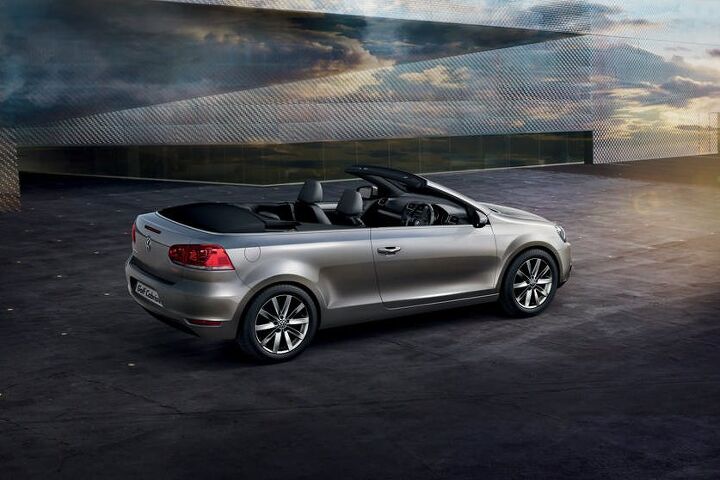
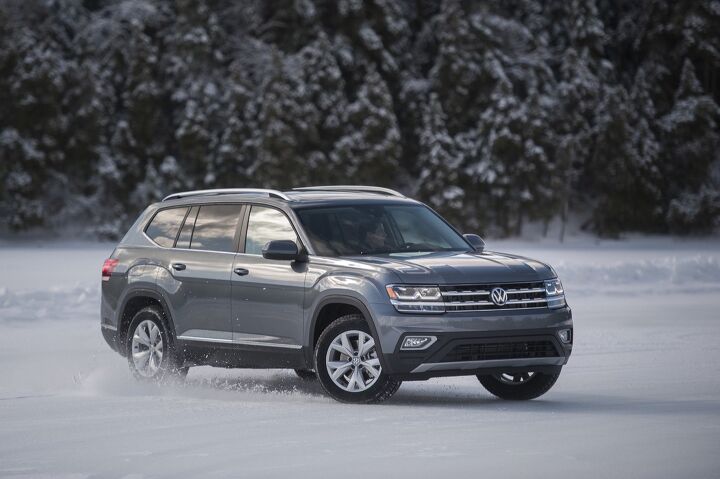
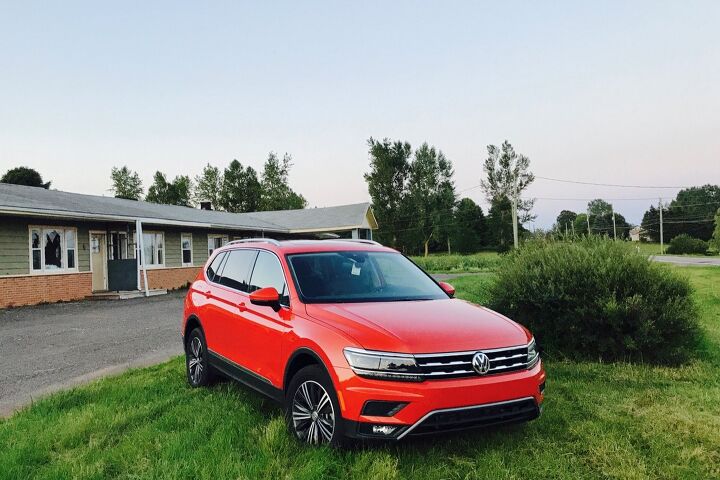
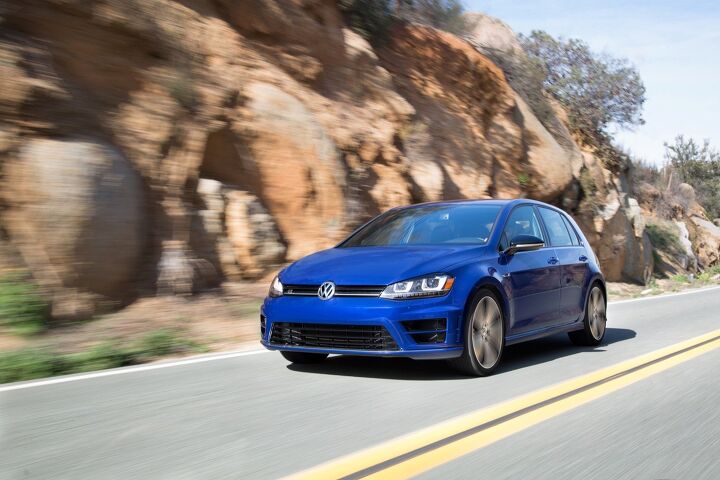
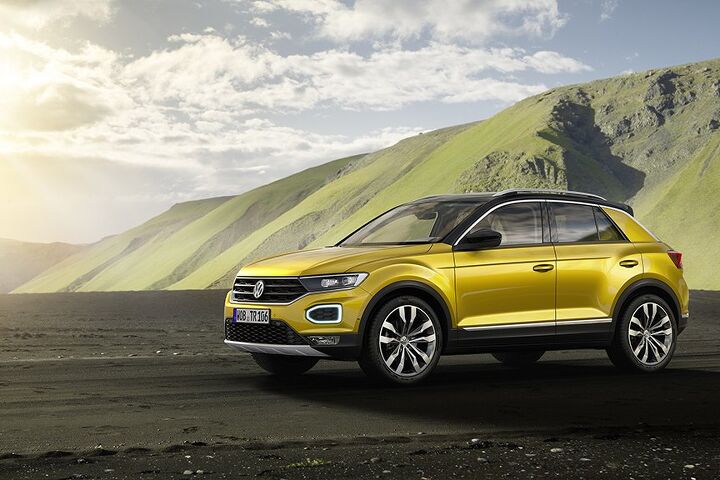

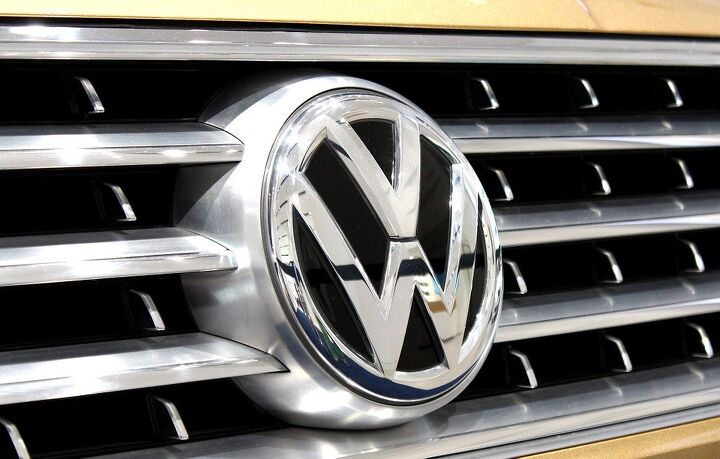


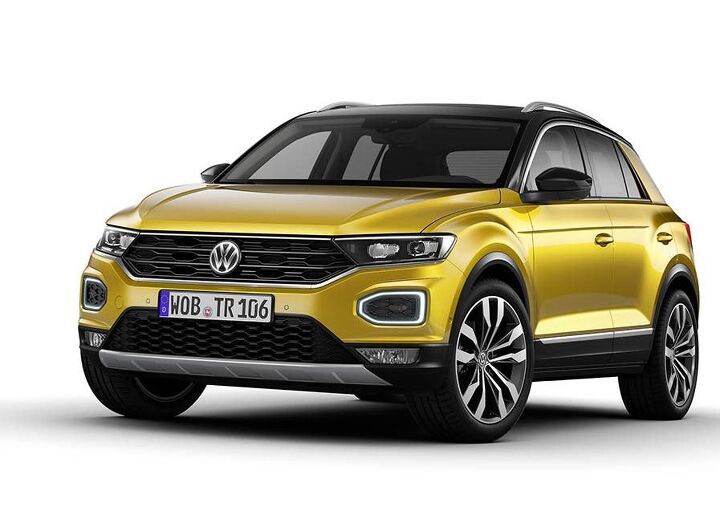

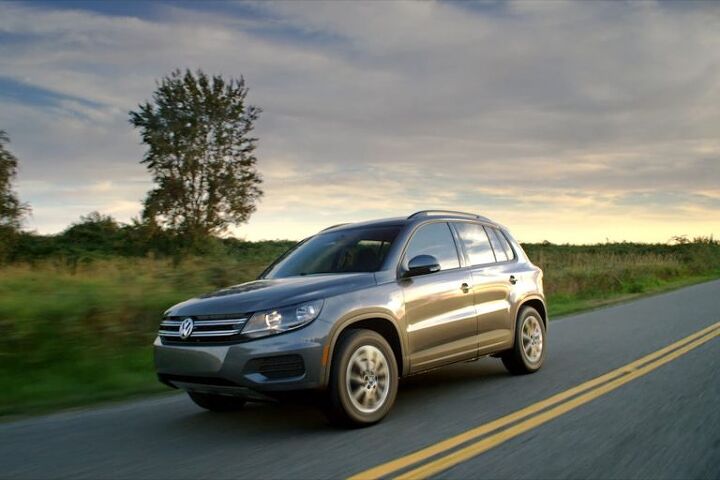



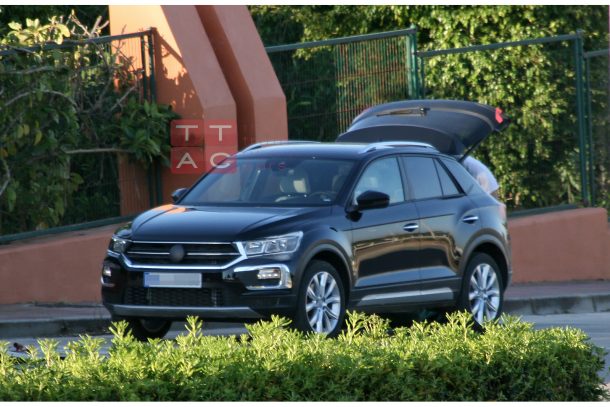

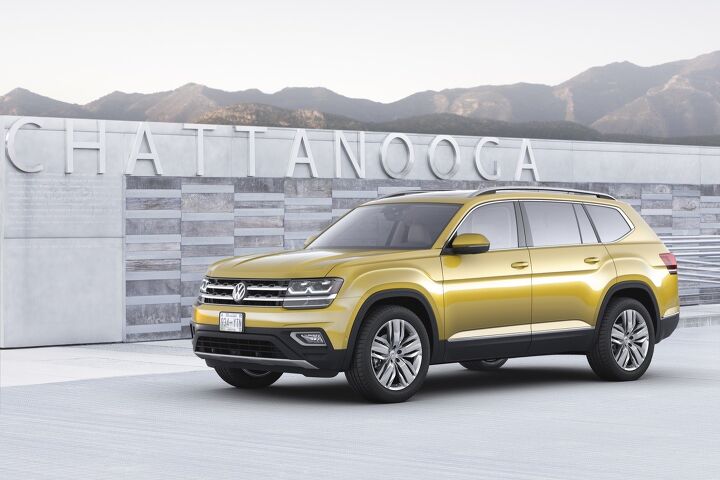

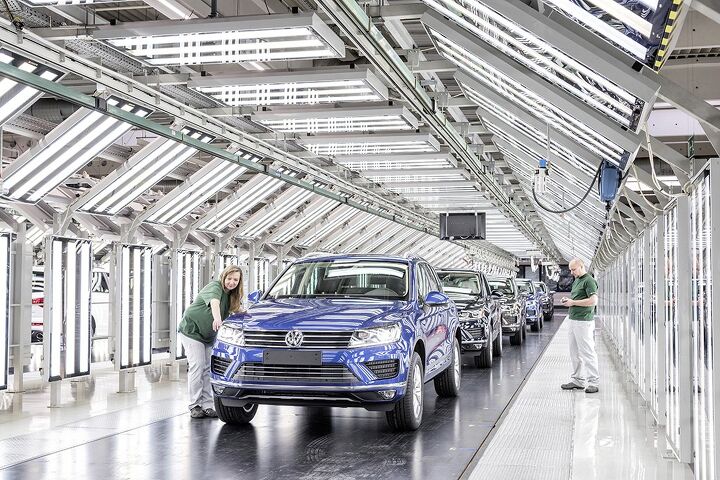
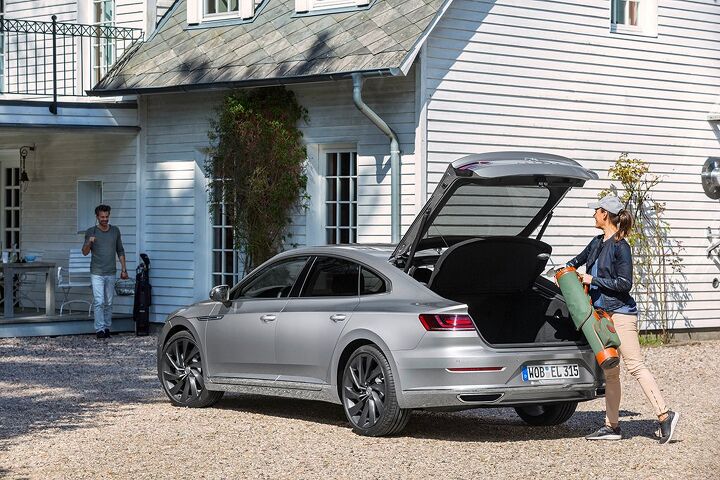

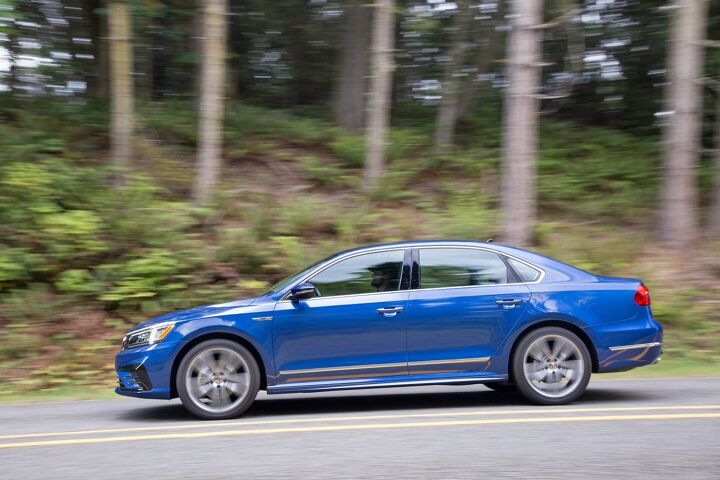
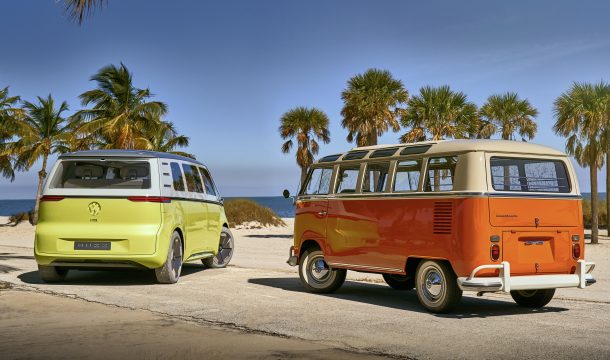



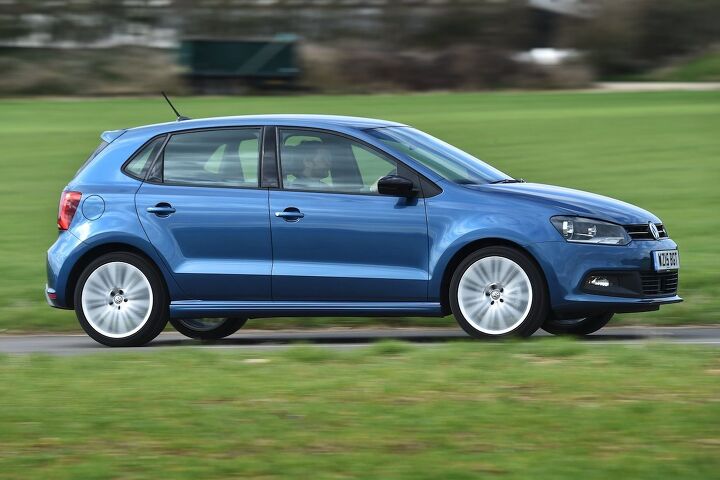

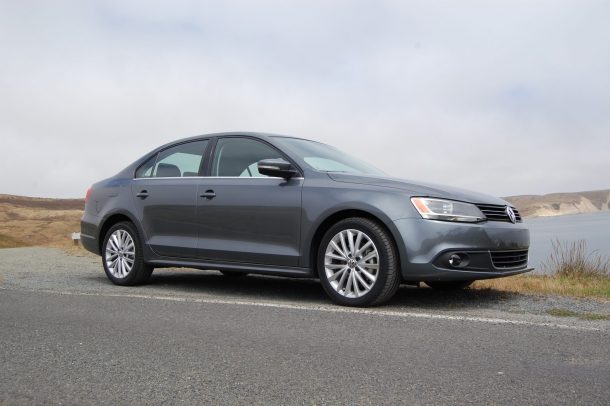
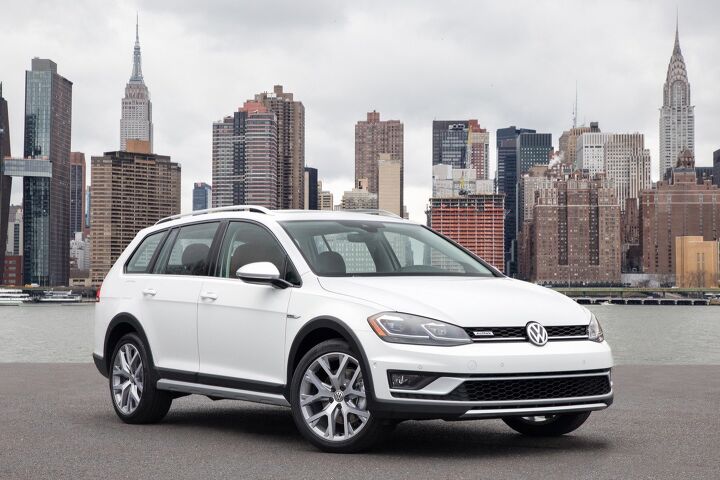
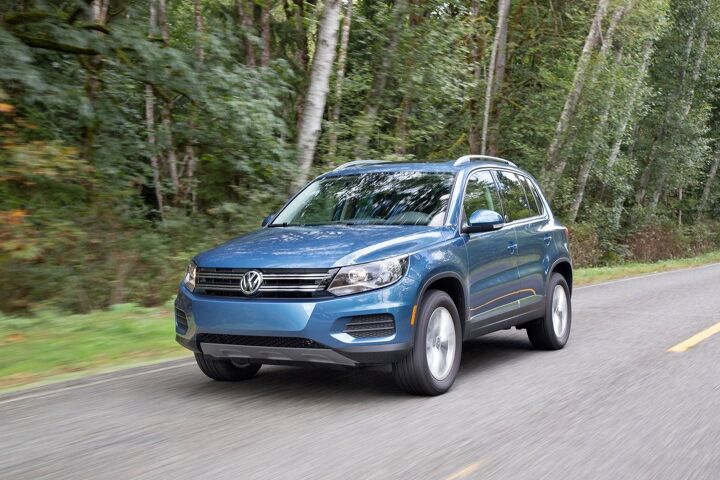


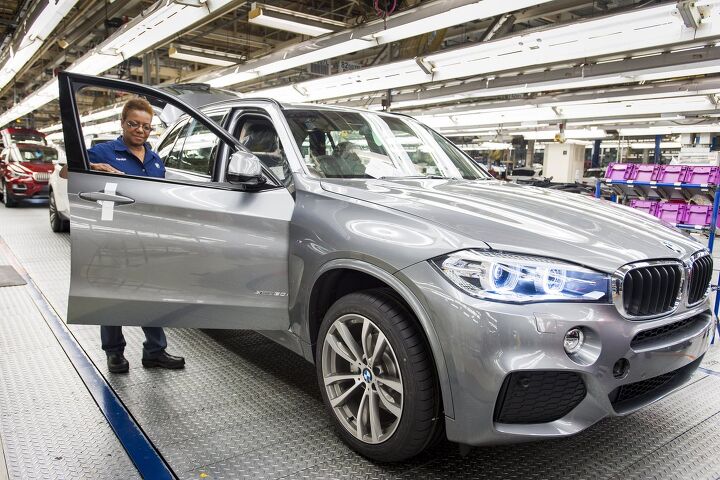


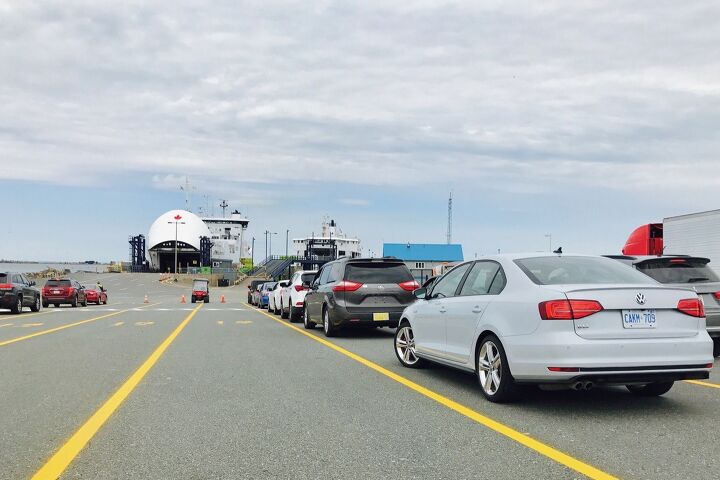




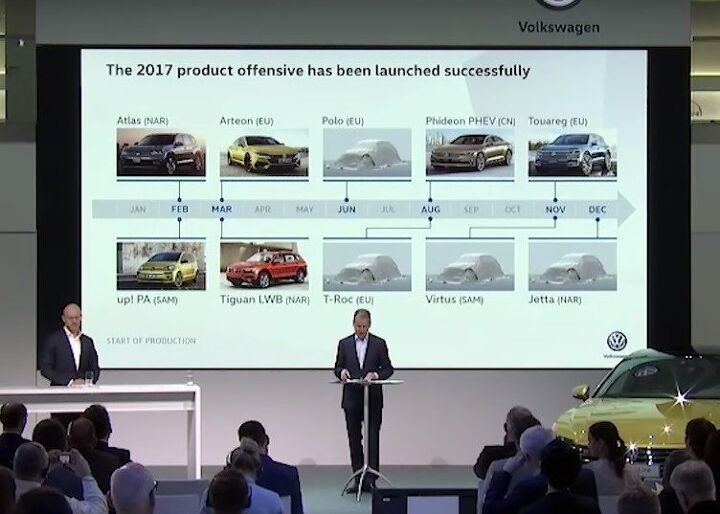
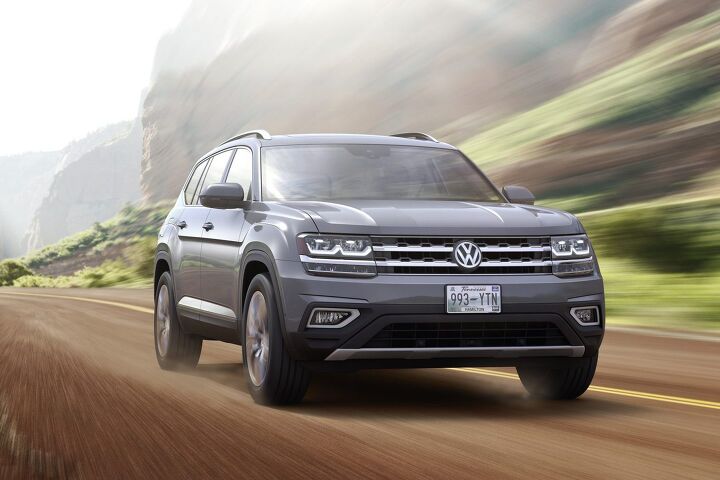
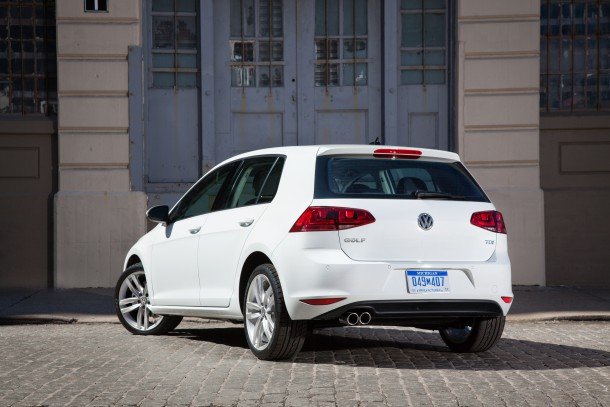
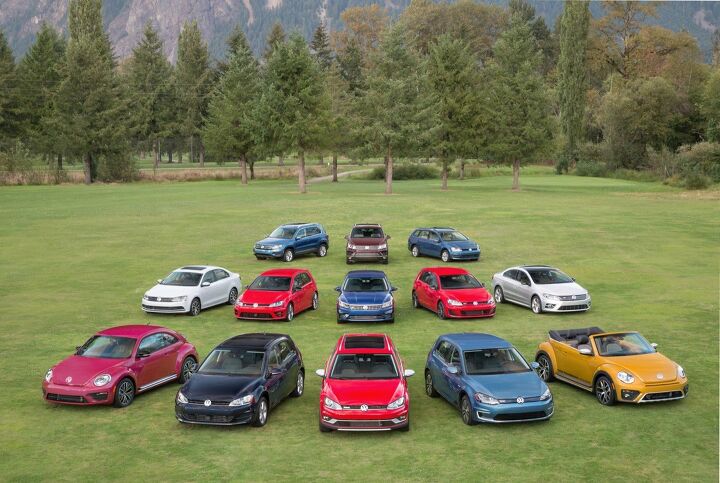
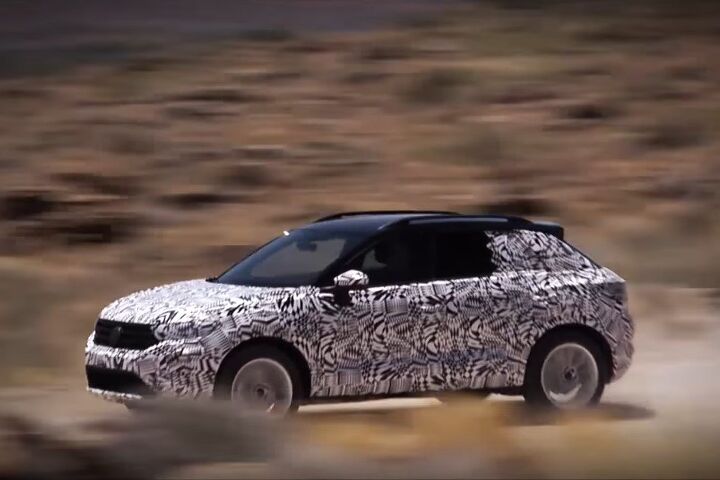
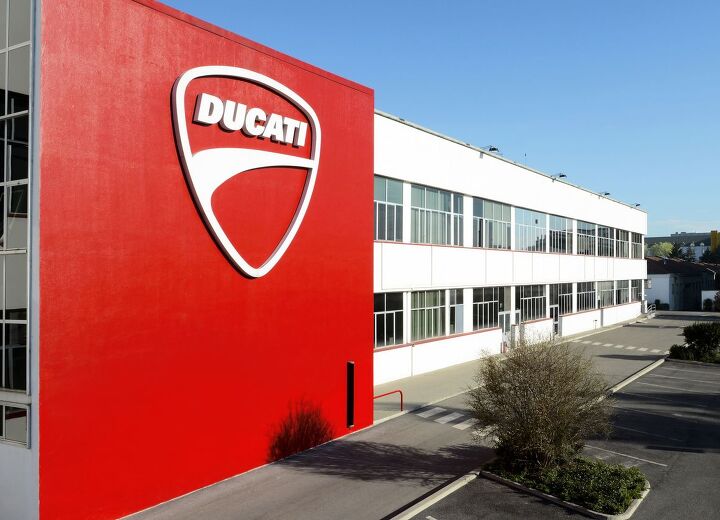
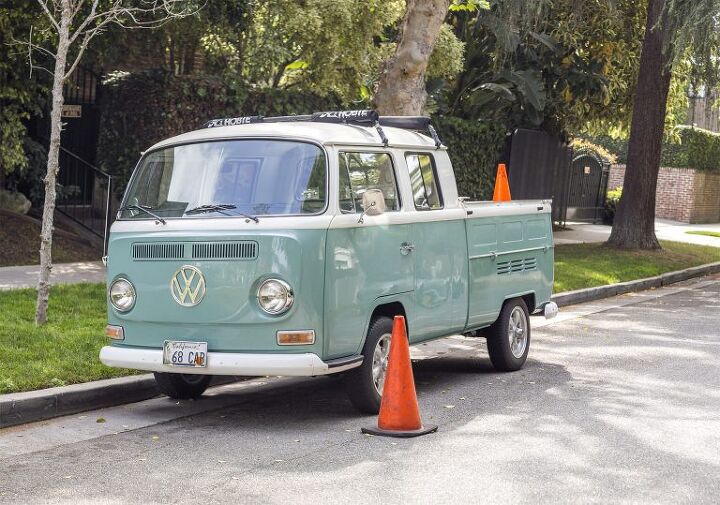

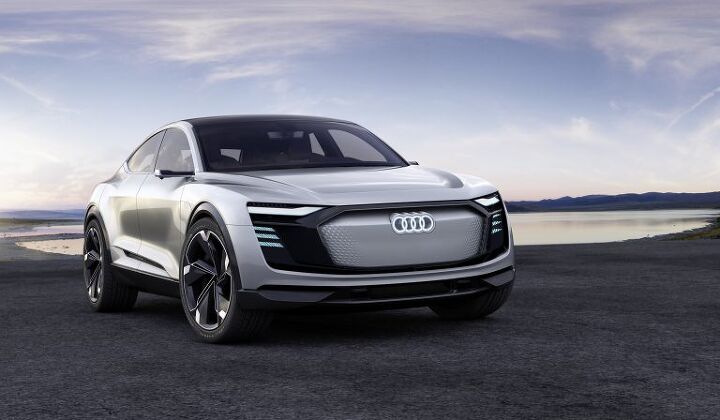
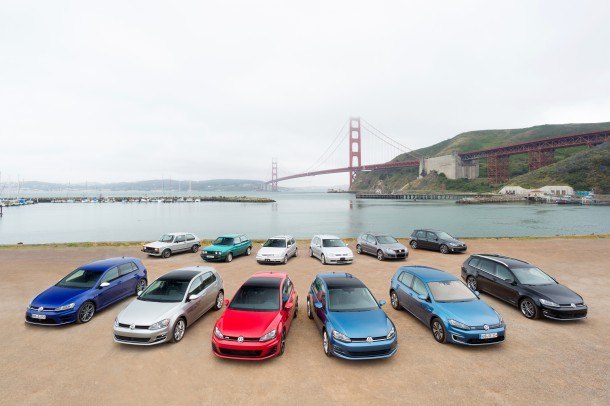
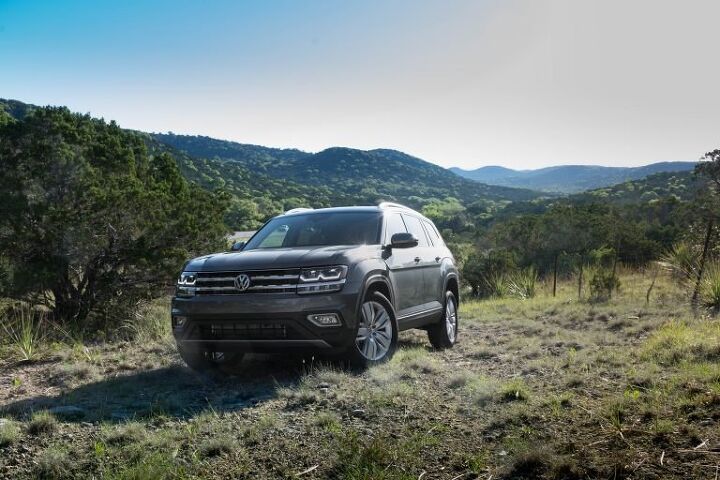













Recent Comments